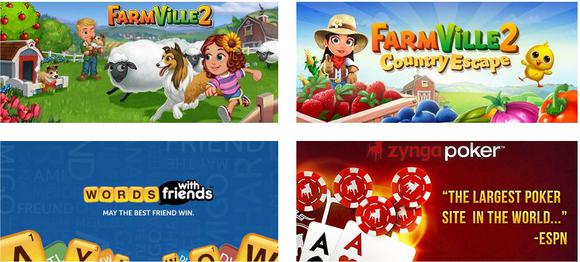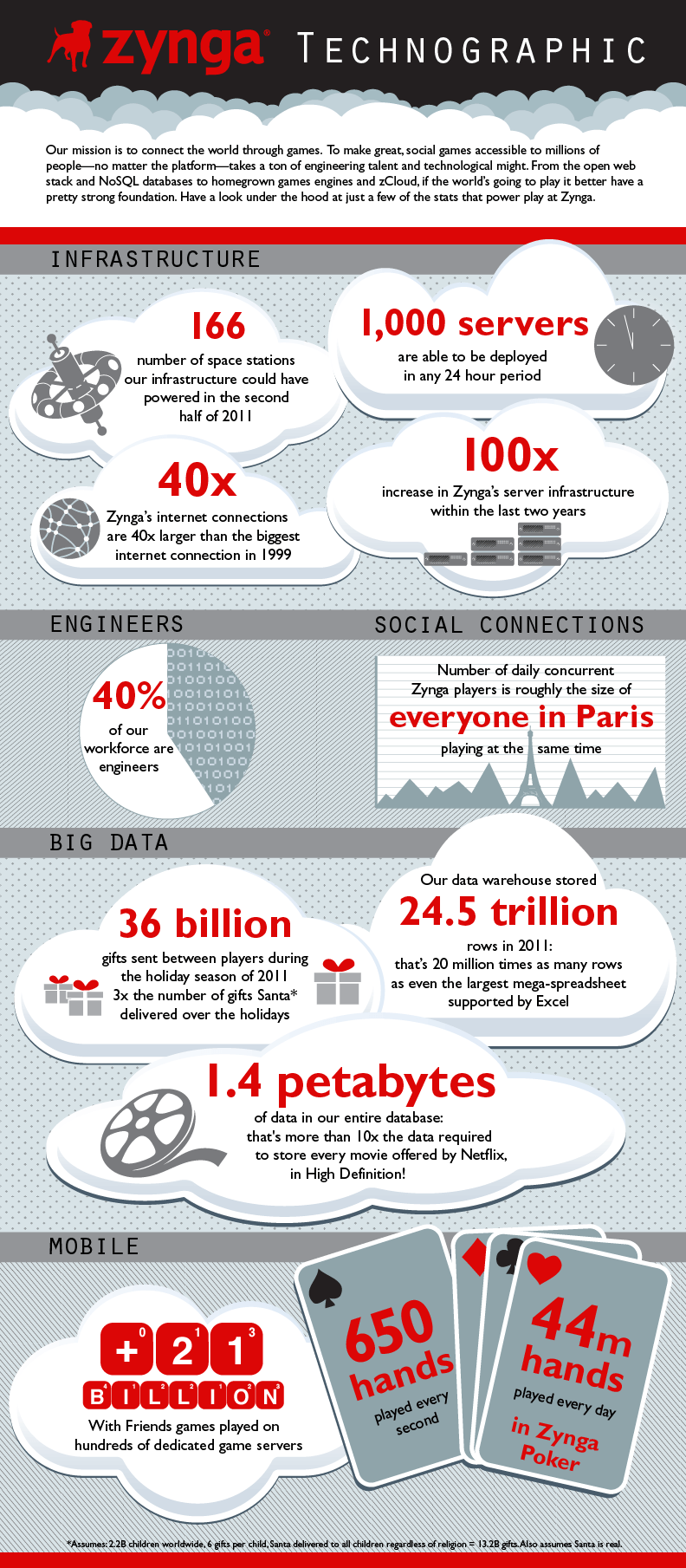Zynga: Big Data Company Disgused as Gaming Company?

Zynga is a social casual gaming company that uses petabytes of data to create value in its products.
Disclosure: I worked at Zynga from 2014-2015
Zynga is a pioneer and a leader in creating casual social games for web and mobile. Its claim to fame is creating Farmville and Words with Friends – games that blew up on Facebook. Founded in 2007 by HBS alumni Mark Pincus, the company is well-known for its analytical approach to game design and rapid experimentation. When I was interviewing with them back in 2014, I remember distinctly asking multiple Product Managers (PMs) what differentiated Zynga from its competitors. They all replied: “huge volumes of user data” that could be used for experimentation and optimization.
Value Creation & Capture
Zynga’s games are mostly casual, meaning users play for short bursts of time. The dominant business model is free-to-play, and typically less than 2% of players actually pay (through the in-game sale of virtual goods). A secondary revenue stream is ads revenue: Zynga surfaces ads to users who don’t pay in games. For example, in Words with Friends, users’ screens are taken over by a full-page interactive ad after each time user plays a word.
It’s expensive to acquire users into games. Hence, it’s important that Zynga 1) retain existing users and get them to come back frequently (to generate ad revenue) and 2) optimize game mechanics to squeeze money out of paying users.
How does Zynga do it?
Zynga created an extremely data-driven culture. Every user action is recorded in their system. Product Managers analyze users’ actions and social interactions to guide game improvements. For example, in the original Farmville, animals were simply decorations, but user data showed increasing interactions between players and the animals. Some users even purchased virtual animals using real $! Subsequently, Zynga elevated animals’ involvement in Farmville 2 and created “rare animals” to lift revenue [1]. After each iteration, Product Managers continue to collect data and go through the same analysis cycle – the ongoing feedback loop to keeps games compelling and enhances the player experience.

Back in 2012 Zynga already had 1.4 petabytes of user data [2] that Product Managers used to optimize key game metrics: retention, engagement, monetization, and referrals.

Challenges
Casual gaming is an extremely competitive space. Since they don’t require much commitment, users can be fickle especially if there are more options. While Zynga had a data advantage in the early days and was able to “out-PM” its peers, competitors have since caught up and adopted similar data-driven mentalities and built similar experimentation capabilities in their games. Supercell (Clash Royale, Clash of Clans, Hay Day) is a salient example. Its portfolio of companies have reached over 100M DAU [3] by perfecting data-driven game development. On multiple occasions I’ve noticed slightly different variations in my version of Hay Day vs a friend’s, signaling that one of us was in an experiment group.
Collecting large quantities of data and using that data to rapidly optimize game loops is now table stakes for large gaming companies. The next evolution is incorporating machine learning to provide a customized, adaptive experience based on user actions and habits on an individual level. Zynga’s foray into dynamic tuning was on Looney Tunes Dash, but there were seriously learning hurdles as the team tried to figure out how to properly set up ML.
[1] https://techcrunch.com/2012/02/15/zynga-ramps-up-private-cloud-infrastructure-zcloud-now-stores-1-4-petabytes-of-data/
[2] https://datafloq.com/read/zynga-is-a-big-data-company-masqueraded-as-a-gamin/505
[3] https://venturebeat.com/2016/03/07/supercell-hits-100m-daily-players-with-four-mobile-games/


